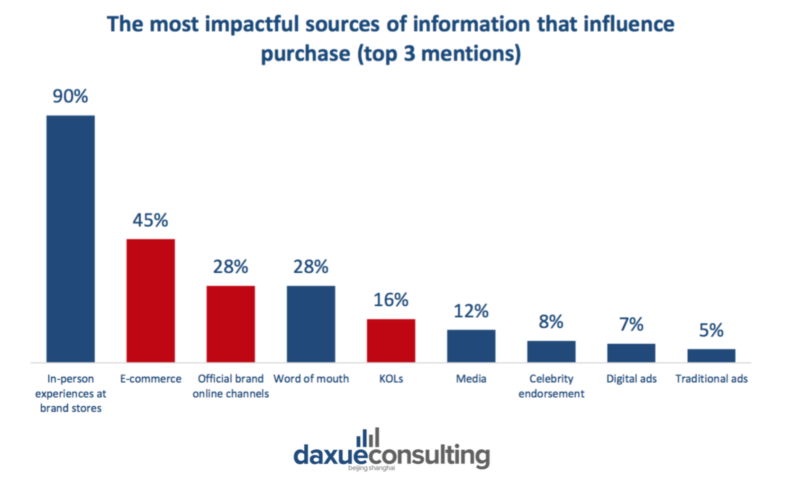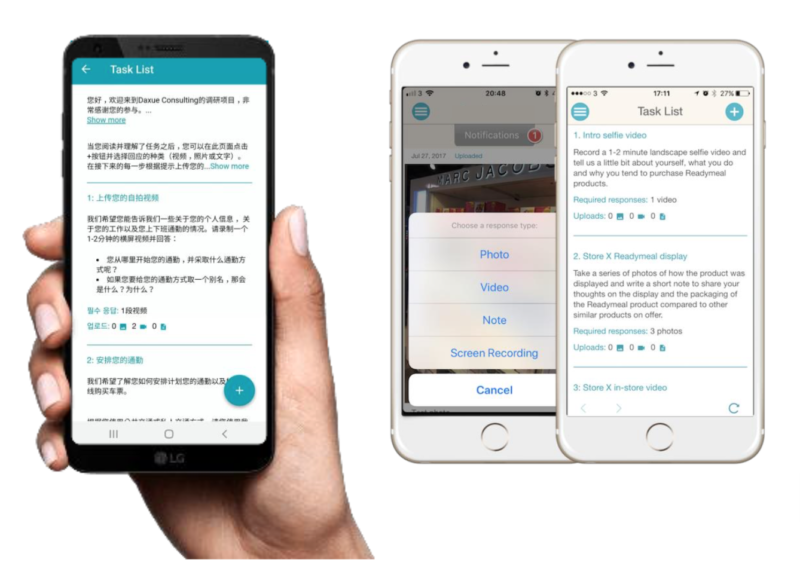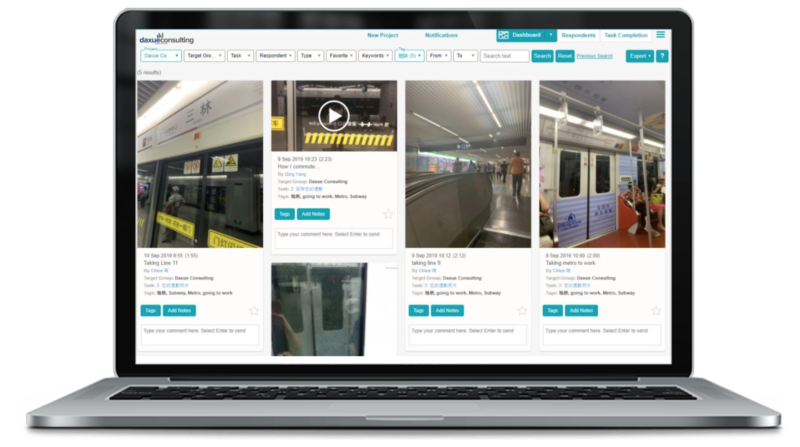Diary research in China

In-Vivo Consumer Research in China: Gain in-context Chinese consumer insights through diary research in China
What is diary research in China?
Diary research, also known as in-vivo consumer research or a digital ethnography study, is a methodology that daxue consulting leverages in China to understand the target audience’s daily moments and user journey. A diary reserach in China places the brand at the intersection of their customer, their context and the real life moments in which they experience their product or service.
In order to carry out digital diary research in China, participants involved are required to provide opinions and insights according to specific research topics during an extended period, in order for qualitative data such as consumer behaviour, purchasing journey and experiences to be collected.
Why does daxue consulting conduct digital diary research in China?
As almost every daily activity and transaction evolves around a mobile device nowadays, a digital diary can be used to capture real-time online and offline behaviours of mobile phone users, and thus be used a tool to identify Chinese consumer insights.
Consumer journey and purchasing decisions are not made in a linear fashion. Identifying the key online and offline touch points will assist brands in effectively planning their marketing campaigns or new products design and launches.

Besides offline experiences, digital channels are the most impactful sources when it comes to influencing purchase decisions. Within the context of Chinese consumers evolving more and more around the mobile device, diary research can further identify these in-vivo touch points and influencers that affect the consumer journey and the purchasing journey.

Therefore, with the digital evolution in China, and the ever-growing Chinese millennial and Generation Z consumers with more purchasing power than before, a diary study in China via digital ethnography platform is a must-have for brands to better understand the following:
- Barriers and triggers throughout the purchasing journey
- Testing of a concept, solution, services and products
- Understand the emotions, attitudes, behaviours throughout the entire consumer journey
The research design and software adopted by daxue consulting for conducting In-Vivo consumer research in China
3 stages of digital diary study in China: Key methodologies and software
Daxue consulting’s approach to and structure for In-vivo consumer research in China includes three main stages.
Stage 1 – Project Planning and Setup
The first stage of In-vivo research is the introduction phase, which involves recruiting and screening qualified participants as well as setting up the APP and the dashboard for daily diary logging. According to the objectives aligned and the criteria to be tracked throughout the diary study, tasks will be designed to be completed in the natural environment. One to two sessions of internal workshops with the client and pre-study brief with the participants will be conducted to validate the analysis, the reporting framework, and the timeline for the In-vivo research.
Tasking describes the tasks that subjects complete during diary research in China. Usually three different types of tasking are involved depending on the objective of the research.
- All-at-once tasking
All tasks will be shown to the respondent as soon as they register. This method is usually applied when showing all of the tasks at the outset will not bias or affect the quality of the responses.
- Scheduled tasking
This method of tasking will be employed when there are many tasks for the respondent to complete or when tasks relate to a specific event or time during the duration of the diary research in China.
- Sequential tasking
This tasking method will be adopted for projects where respondents are required to carry out tasks in a particular order or where respondents are prevented from viewing upcoming tasks until they have completed the current task. For projects such as path to purchase, shopping missions, customer journeys and CX/UX, tasks are scripted to occur in a linear sequence and next task will only be available after the previous task is done.

Stage 2 – Project running via Chinese diary study App
At the second stage, respondents will post in-vivo videos, pictures, screen records, photos or notes with easy interface similar to WeChat moments. Entries by participants during the logging period will be evaluated and categorized for the purpose of qualitative and quantitative In-vivo data collection and analysis. Daxue consulting’s insights dashboard will help to maximize task completion, while moderate offline methodologies such as shop along, focus groups and F2F interviews will be carried out to enrich and assist with the diary study. The expected deliverables may be 1 – 4 weeks for short-term projects and up to 3 – 6 months for long term projects.

Stage 3 – Periodical Report and Analysis
The third stage of In-vivo research is the conclusion phase. Data analysis and synthesis will be conducted through the dashboard and different analytical software will be used to find quantitative data. Final report output as per the aligned framework and KPI will include: key target persona identified; triggers and pain-points of the key decision making moments throughout the consumer journey; recommendations for UX/UI improvements; and evaluation of tested concepts.
Utilise daxue consulting’s expertise in Diary Research in China to gain thorough insights of the Chinese Market
In order to provide reliable and useful information, daxue consulting has designed in vivo-research to specifically adapt to the Chinese market, and it will be customized to fit with your needs and expectations. We can you gain comprehensive Chinese consumer insights through in-vivo research to reveal the pain-points or key triggers in purchase decisions, identify purchase behaviours, and determine validity of strategies.
Contact dx@daxueconsulting.com to gain insight about Chinese consumers with a diary study in China!

